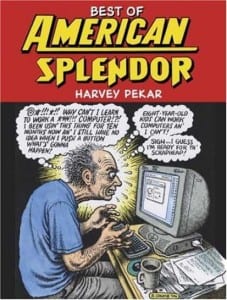 Yesterday I attended the British Library / JISC Conference Digitised History: Newspapers and their Impact on Research into 18th and 19th Century Britain. Linked to the launch of the British Library Newspapers 1800-1900, which offers online access to “articles from 49 London, national and regional newspaper (1800 – 1900) titles”, the conference brought together expert speakers who use digital resources in researching and teaching History. Our Director, Claire Warwick, was a panellist in the final plenary discussion.
Yesterday I attended the British Library / JISC Conference Digitised History: Newspapers and their Impact on Research into 18th and 19th Century Britain. Linked to the launch of the British Library Newspapers 1800-1900, which offers online access to “articles from 49 London, national and regional newspaper (1800 – 1900) titles”, the conference brought together expert speakers who use digital resources in researching and teaching History. Our Director, Claire Warwick, was a panellist in the final plenary discussion.
My own interest was as a researcher in 19th century publishing history, but my motivation for attending was as the tutor on the optional module on Historical Bibliography for the MA in Library and Information Studies here at UCL: it’s vital to keep up-to-date on new research tools that students may need to use, not only in the module itself but also in their final dissertation if they choose a historical topic.
I have to say that all the presentations were extremely useful, and I left with not only enough material for the 15 minute segment I’ll give this year’s class on the new database, but also for a seminar session on the use of digital versions versus the original object. Speakers gave good case studies as well as opinions on both sides of the digital divide – the Institute of Historical Research created an archive of the tweets, which I recommend reading, as this blog post has to be selective on the grounds of space, and there is so much more that could be included.
Professor Miles Taylor (IHR) gave a good opinion piece highlighting some concerns, especially:
- users’ awareness of the range and depth of material available digitally (around 55,000 newspaper titles from the 19th century remain undigitised)
- the privileging of ‘typical’ newspapers and newspapers with long runs (most 19th century newspapers were short run and ephemeral)
- the focus on digitising newspapers is good, but we are not gaining a wider picture of newspapers as businesses and the impact this has on our understanding of news and its creation
Professor Laurel Brake (Birkbeck) also highlighted some issues that should give us pause for thought (in a presentation that otherwise gave a very positive view of the new possibilities opened up tor researchers by digital resources):
- the remediation of print into digital requires awareness on the part of researchers (the digital literacy that Dr James Mussell (Birmingham) advocated brilliantly)
- researchers still need some awareness of the physical object – for example, an article’s placement in a newspaper is an editorial decision that tells us important things about its importance, and this can be lost in the egalitarian delivery of a search facility, where an article is an article is an article
- the physical nature of the screen can itself obfuscate the layout of the newspaper – browse facilities do exist and should be used by researchers to gain an idea of context.
- different editions of newspapers were published, and it is important for researchers to be aware of this; and the fact that often only one edition is digitised (indeed the BL’s policy at Colindale for the physical newspaper collection, was generally to retain only one edition (usually the latest edition).
The general feeling of the day seemed to be that while we should be cautious, and aware of the limitations of digital resources, the benefits could be immense. Keynote speaker Dr Patrick Leary highlighted that historians of the Victorian era are moving from a scholarly economy of scarcity to one of abundance, and, bearing in mind some of the limitations, it is now possible to look up facts about the daily life of Victorian people in a way that was time-consuming and costly (in terms of travel expenses) to previous generations of scholars, like Richard Altick (author of the seminal English Common Reader). He highlighted Cohen and Gibb’s recently Google-funded project Reframing the Victorians, which will use new digital resources to re-examine Walter Houghton’s influential thesis in The Victorian Frame of Mind that Victorians were largely optimistic, judging by their use of certain language – thanks to the quantity of the corpus that exists online now, and the digital humanities tools that have been devised, it will be possible for them to look at a far wider range of vocabulary than Houghton could manage manually.
As a lecturer, I was really inspired by some of the research exemplified and by some of the teaching that is being undertaken; and by the number of attendees at the conference keen to learn more about using these resources and introducing them to their classroom teacher.As a traditionally qualified librarian and historical bibliographer, I was equally pleased to hear Dr Moira Goff ask us to think about the future role of the original items, and, indeed, the future of the original items themselves. It seemed appropriate that the final remark of the day, from a member of the audience, should be that wonderful and empowering as digitised versions are, there are some things that we can only see and investigate on the book (or newspaper) as object itelf.
 Close
Close



 Yesterday I attended the
Yesterday I attended the  Harvey Pekar, an American writer of nonfiction comics, died on Monday July 12, 2010, aged 70. Pekar achieved fame with his
Harvey Pekar, an American writer of nonfiction comics, died on Monday July 12, 2010, aged 70. Pekar achieved fame with his 